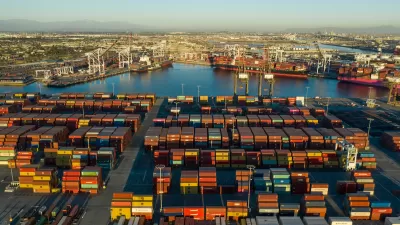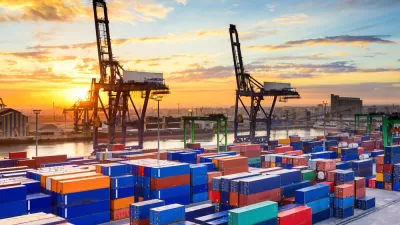This interview below with the Chinese Premier offers a preview of the challenges and opportunities that will unfold at the December 2009 UN Climate Conference (see http://en.cop15.dk/?gclid=CI-ImOyB8JwCFYwwpAodNSUfjQ) Here is the interview, http://www.chinadaily.com.cn/opinion/2009-09/14/content_8687301.htm
This interview below with the Chinese Premier offers a preview of the challenges and opportunities that will unfold at the
December 2009 UN Climate Conference (see http://en.cop15.dk/?gclid=CI-ImOyB8JwCFYwwpAodNSUfjQ)
Here is the interview, http://www.chinadaily.com.cn/opinion/2009-09/14/content_8687301.htm
China will continue to make efforts to reduce its energy intensity but it clearly does not want to be lectured about strict carbon targets. This should make the 350ppm crowd nervous. That goal is not going to be met. It is clearly time to start thing seriously about climate change adaptation.
Today's China newspaper also reports some angry stories about the U.S import tariffs on Chinese tires. The Obama Team is supposed to be so smart. Starting a trade war before this December Conference, does not strike me as smart. Climate change is more important an issue than protecting declining U.S unionized industries and paying back political domestic favors to old friends from the last election.
If I were part of the Obama Team, I would offer an olive branch of technological transfer focused on helping China reduce its Energy Intensity.
My Chinese friends have pointed out to me that Japan has done much more of investing serious resources in helping China reduce its energy intensity than what the USA has done. As Eric Morris and I discussed in a recent JAPA paper; let's "walk the walk".
PERMIT ME TO QUOTE PREMIER WEN JIABAO
Q: China set specific targets on tackling climate change both in the 11th Five-Year Plan and the National Program on Tackling Climate Change formulated and released by the Chinese Government in 2008, and progress is being made in meeting these targets. What will be the tasks and goals of the Chinese Government on addressing climate change in its 12th Five-Year Plan, and what constraining factors will China face in achieving these targets?
A: In the 11th Five-Year Plan, we set the target of reducing energy intensity by 20 percent and, based on the progress made so far, we may achieve this target in 2010 as scheduled. We have intensified our efforts to bring down energy intensity, including shutting down small coal-fired power plants with total capacity of over 50 million kilowatts. Energy conservation and emission reduction will continue to be our long-term goal in pursuing sustainable economic growth during the 12th Five-Year Plan period and beyond. And there will be a major drop in China's energy intensity by 2020.
China and Western developed countries are at different stages of development. Since the industrial revolution, Western countries have gone through 250 years of industrialization, while in China industrialization on a large scale only started several decades ago. We need to advance development, and at the same time keep up our efforts for energy conservation and emissions reduction. We need to strike a balance between these two and the ultimate goal of doing so is to achieve sustainable development. Without development, we will not have the capacity to save energy and reduce emissions.
Let me give you an example. China's per capita power consumption is 2,580 kWh. It is only one fifth of the United States and one third of Japan. But China is a country with 1.3 billion population and its industrialization and urbanization are picking up speed. It will be more challenging and more difficult for China to develop a green economy, and save energy and reduce emissions.
Tackling climate change is the responsibility of the whole world. Both developed countries and developing ones should pursue the path of green development - green investment, green consumption and green growth. Yet it will be a process, and during this process, developing countries, including China, and developed countries should enhance cooperation to jointly respond to climate change.
The principles and provisions of the UN Framework Convention on Climate Change and its Kyoto Protocol should be upheld and the principle of common but differentiated responsibilities should be adhered to.
First, developed countries should redouble their efforts in energy conservation and emissions reduction and meet the emissions cut standards set in the Kyoto Protocol as scheduled.
Second, developed countries should extend technical, financial and capacity-building support to developing countries.
Third, developing countries, on their part, should take energy conservation and emissions reduction measures, pursue green growth and extensively apply new technologies to reduce CO2 emissions in light of their realities. China will play a positive and constructive role at the Copenhagen conference and we hope the conference will achieve substantial results.

Planetizen Federal Action Tracker
A weekly monitor of how Trump’s orders and actions are impacting planners and planning in America.

Maui's Vacation Rental Debate Turns Ugly
Verbal attacks, misinformation campaigns and fistfights plague a high-stakes debate to convert thousands of vacation rentals into long-term housing.

San Francisco Suspends Traffic Calming Amidst Record Deaths
Citing “a challenging fiscal landscape,” the city will cease the program on the heels of 42 traffic deaths, including 24 pedestrians.

Amtrak Rolls Out New Orleans to Alabama “Mardi Gras” Train
The new service will operate morning and evening departures between Mobile and New Orleans.

The Subversive Car-Free Guide to Trump's Great American Road Trip
Car-free ways to access Chicagoland’s best tourist attractions.

San Antonio and Austin are Fusing Into one Massive Megaregion
The region spanning the two central Texas cities is growing fast, posing challenges for local infrastructure and water supplies.
Urban Design for Planners 1: Software Tools
This six-course series explores essential urban design concepts using open source software and equips planners with the tools they need to participate fully in the urban design process.
Planning for Universal Design
Learn the tools for implementing Universal Design in planning regulations.
Heyer Gruel & Associates PA
JM Goldson LLC
Custer County Colorado
City of Camden Redevelopment Agency
City of Astoria
Transportation Research & Education Center (TREC) at Portland State University
Jefferson Parish Government
Camden Redevelopment Agency
City of Claremont






























